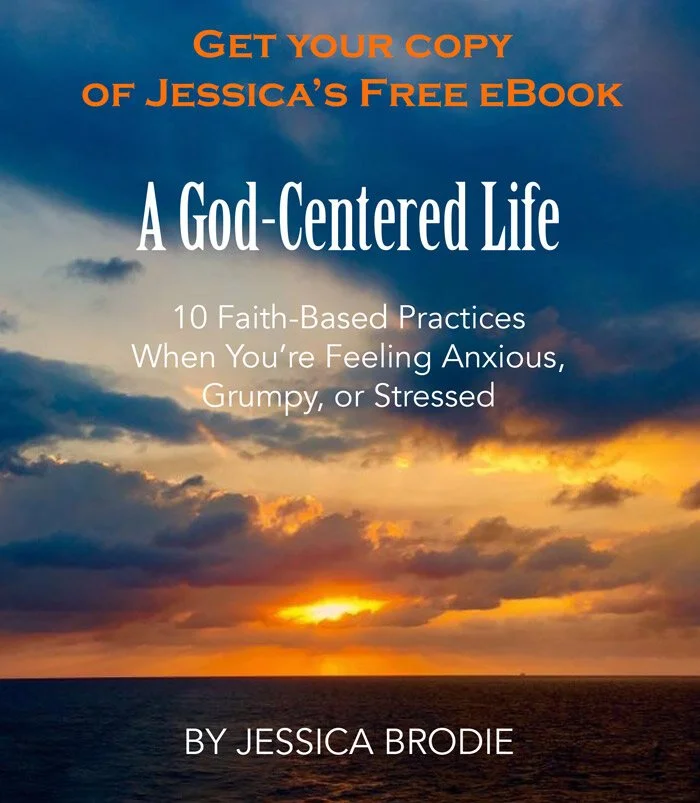Heeding the Warning Signs
By Jessica Brodie
I’m an intelligent person, but I cringe to admit: I haven’t always exuded common sense. When I was young especially, people often said I was too smart for my own good, meaning I’d be so interested in the big, cryptic abstractions that I’d completely tune out the everyday, basic stuff—to my own detriment.
Sometimes, I could be downright dumb.
For example, when I was sixteen I saved up my money to buy my first car, a clunker. It was a big beige whale of a vehicle I nicknamed Shamu, after the giant killer whale at SeaWorld, and I was happy—it got me everywhere I needed to go. My parents warned me to be careful and keep gas in the tank, and I did. But when the engine light came on, I figured it was no big deal. After all, no one had ever mentioned that would happen, and Shamu was a very old car. Surely that light was normal, I rationalized.
So I ignored the engine light … until one day my car ran completely out of oil and broke down. Ignoring that light cost me my car, for it killed the engine.
Today, I’m still tempted to ignore rules or subtleties I think don’t matter, but wisdom has taught me to heed instructions and watch for warning signs. It doesn’t matter how many books I read: I don’t always know best, and logic and my own experiences can’t always keep me safe or on the right path.
I’ve been rereading the Old Testament recently, and some of the rules God gave the Israelites in Exodus, Leviticus, Numbers, and Deuteronomy are incredibly hard to understand. Many of them make perfect sense to me—social and moral laws, such as not killing each other, and treating each other with compassion and mercy. But others, such as the many laws about sacrifices and kosher food, or how big to build certain relics, are baffling. Why did God care exactly how many cubits wide people made the Ark of the Covenant, the wooden chest that would hold the Ten Commandments, or whether they used acacia wood versus some other kind (Exodus 25:10-22)? Why did God specify the people alternate pomegranates and bells on Aaron’s priestly robe (Exodus 28:34)? Or food—why did God tell people not to eat animals that don’t chew cud or have a divided hoof, such as pigs (Leviticus 11:7), or eat sea creatures without fins or scales, such as shellfish (Leviticus 11:9-10)?
His rules go on and on about how to “live clean” and holy and in a manner pleasing to Him, and disobedience brought dire consequences.
For instance, in 2 Samuel 6, the Bible recounts how David and his men were transporting the Ark of the Covenant back to its rightful home when the oxen carrying the cart stumbled. One man, Uzzah, reached out to grab the ark so it wouldn’t fall—violating God’s instructions about careful respect for the relic. In consequence, we’re told, “The Lord’s anger burned against Uzzah because of his irreverent act; therefore God struck him down, and he died there beside the ark of God” (2 Samuel 6:7 NIV). It sounds harsh. It is harsh, in my opinion. But I know there was a reason, even if I don’t know the reason.
I still don’t know why God had so many difficult, hard-to-comprehend rules during those days. I’ve read the Bible many times and still can’t even properly and succinctly explain why there are certain things that are considered acceptable by many Christians now (like eating pork) that were not OK back then, all because Jesus established a new covenant when he paid our sin-debt.
But here’s the thing: I don’t need to know why. I just need to respect that God made rules for a reason and try my very best to align myself with God and God’s ways.
As the apostle John writes in 1 John 5:3, “In fact, this is love for God: to keep his commands. And his commands are not burdensome.”
Like my old car’s engine light, God gives us warning signs when we are veering off-course. He might send people in our lives to help steer us back on track, or close doors when He doesn’t want us to do something. He might say “no” when we desperately crave a “yes”—even if we think the “yes” is in line with God’s kingdom.
When these things happen, it can be tempting to get angry, or ignore the signs. Perhaps we push through, determined to persevere and achieve what we want.
But it’s far better to stop, listen to God, heed those signs, and do what God is guiding us to do.
God knows best—not me. Not you.
If you’re in a place where you’re tempted to buck against God’s no, or are genuinely fearful of stepping out into the new, scary role God is urging you to embark on, remember: We serve a God of miracles. He can move mountains and part seas. He can bring down a giant and raise the dead.
Surrendering to God’s plan is the smartest—and safest—path to success, for true success is doing whatever we can to help God’s glorious plan come to fruition.
“Here am I. Send me!”—Isaiah 6:8
WANT TO HELP SPONSOR JESSICA BRODIE’S WRITING MINISTRY BY BECOMING A PATRON? CLICK HERE.
THANKS TO MY SPONSORS: MATT BRODIE, EMILY DODD, KATHLEEN PATELLA, BILLY ROBINSON, AND LANNY TURNER.
SHARE TODAY’S BLOG ON SOCIAL MEDIA: CLICK HERE OR THE SOCIAL LINKS BELOW.


